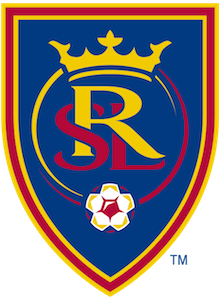Here's what you need to know about the 'Sunday Ticket' lawsuit that could cost the NFL billions

06/25/2024 01:46 PM
Nine years after "NFL Sunday Ticket" subscribers sued the league, alleging it broke antitrust laws, the trial for a case that could cost the NFL billions is underway in federal court. Arguments began earlier this month in the trial, which has featured testimony from NFL commissioner Roger Goodell and Dallas Cowboys owner Jerry Jones, and jury deliberations are expected to begin Wednesday, according to the Associated Press.
Originating from a lawsuit filed in 2015, subscribers to "NFL Sunday Ticket" have accused the league, its teams, and its network partners of working together to sell the out-of-market sports package at an inflated price and restrict competition.
The NFL has argued it was able to sell the viewing package under an antitrust exemption for broadcasting, while the plaintiffs have said the exemption only covers over-the-air broadcasts instead of paid TV, according to the AP.
The plaintiffs are seeking $7 billion in damages, but because it's a federal antitrust case in which damages can triple, that number could increase to $21 billion.
What is "NFL Sunday Ticket"?
The league began offering its "NFL Sunday Ticket" package in 1994 as an option for out-of-market fans to watch their home team. For example, a Miami Dolphins fan in Las Vegas can watch the Dolphins' regular-season games that wouldn't be offered on local TV in Las Vegas.
Sports bars and restaurants, aiming to attract business by showing games of out-of-market teams, are also among subscribers.
Until last season, DirecTV exclusively distributed "NFL Sunday Ticket" in the U.S., but the package moved exclusively to Google's YouTube TV in 2023.
Who's included in the lawsuit?
The original complaint was filed on behalf of the Mucky Duck bar in San Francisco. Last year, a district judge ruled the case could proceed as a class action filed on behalf of more than 2.4 million residential subscribers and 48,000 businesses that bought the package from June 17, 2011, to Feb. 7, 2023, per the AP.
The NFL, its teams and network partners DirecTV, CBS, ESPN and Fox, are listed as defendants in the case.
What are the key arguments?
The plaintiffs alleged the NFL and its broadcast partners worked to suppress competition in violation of the Sherman Antitrust Act by entering into exclusive agreements, limiting fans' options to only watch out-of-market games through "NFL Sunday Ticket."
"Plaintiffs claim that absent the allegedly anticompetitive agreements at issue, the telecasts available on Sunday Ticket would be available through other means, which would result in more access to telecasts of NFL games at lower prices," a summary of the case states.
Goodell and Jones, in their testimony, defended the league's broadcast model, with Goodell calling "NFL Sunday Ticket" a "premium product," according to the AP.
"We have been clear throughout that it is a premium product," he said. "Not just on pricing but quality. Fans make that choice whether they wanted it or not. I'm sure there were fans who said it was too costly."
What they're saying
Goodell also said the league put "NFL Sunday Ticket" on DirecTV because it was one the few platforms with national distribution, per the AP. He also referenced the fragmented nature of cable companies as the league's reasoning for why the package wasn't available on cable. Goodell praised the league's broadcast model in which all games are available locally with over-the-air programming.
"We sing it from the mountaintops," he said, per the AP. "We want to reach the broadest possible audience on free television. I think we are very pro-consumer. Our partners have found ways to build our fan base."
Without "NFL Sunday Ticket," an alternative option would be for teams to separately sell their out-of-market rights, which the highly-watched Cowboys could potentially greatly profit from relative to other teams. Jones, however, called that model "flawed."
"I am convinced I would make a lot more money than the Bengals," he said, per the AP. "I'm completely against each team doing TV deals. It is flawed."
What's next?
The trial began on June 6 in Los Angeles and both sides wrapped up Monday, per the AP. But the case could drag out long after, as the losing side could appeal to other courts.
function onSignUp() { const token = grecaptcha.getResponse(); if (!token) { alert("Please verify the reCAPTCHA!"); } else { axios .post( "https://8c0ug47jei.execute-api.us-east-1.amazonaws.com/dev/newsletter/checkCaptcha", { token, env: "PROD", } ) .then(({ data: { message } }) => { console.log(message); if (message === "Human 👨 👩") { document.getElementById("submit-btn").removeAttribute("disabled"); } else { console.log("ROBOTO"); } }); } }This article originally appeared in The Athletic.


